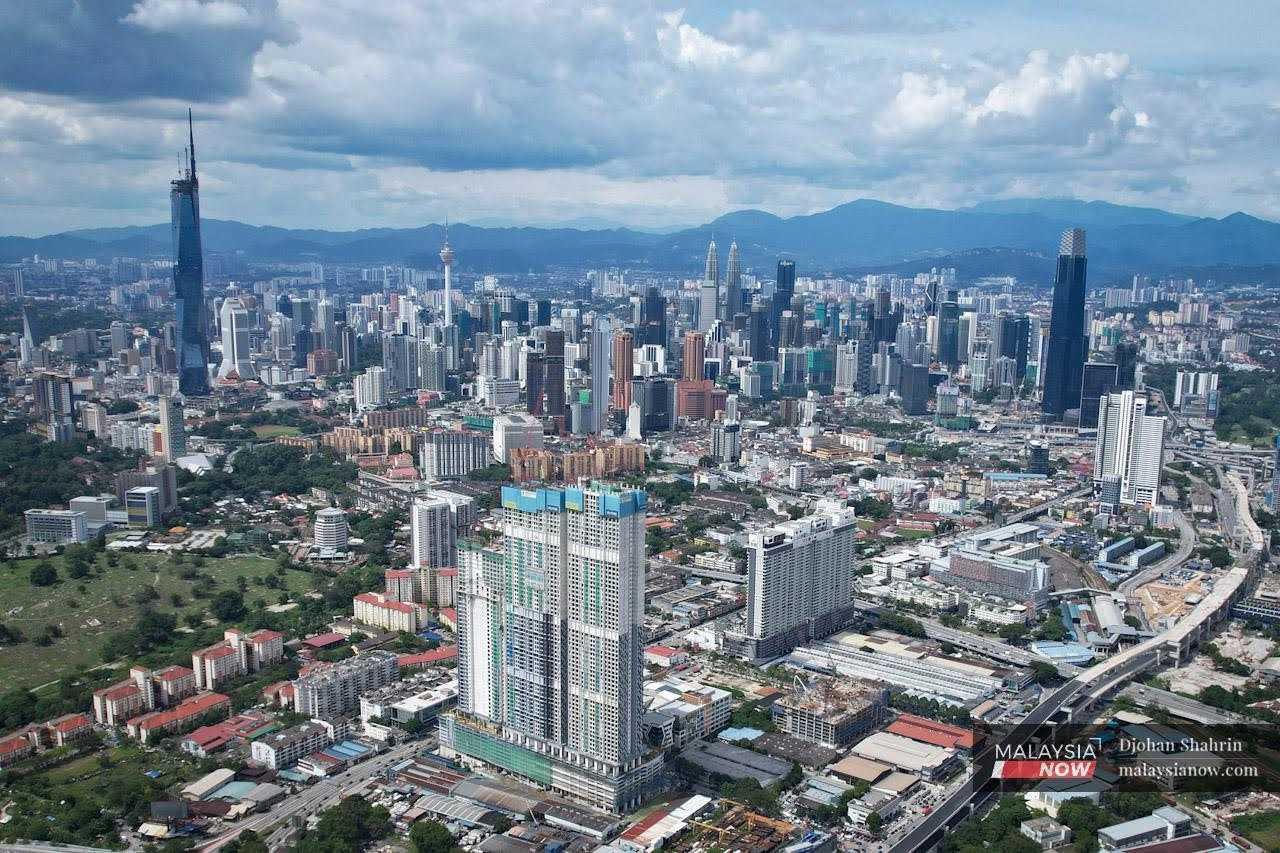Looming stagflation spurs calls for govt to speed up projects, trade deals
While Malaysia's economic fundamentals are strong, industry players say measures should be taken amid global uncertainty.
Just In
As countries around the world struggle with rising inflation and supply chain issues, concerns are growing among some about recession and stagflation amid predictions of a slowdown in global economic growth before the end of the year.
Stagflation refers to a situation in which persistent high inflation combines with high unemployment and stagnant demand.
According to World Bank estimates, global growth may decline from 5.7% in 2021 to 2.9% this year.
Finance Minister Tengku Zafrul Aziz has brushed off fears of a recession in Malaysia, acknowledging however the impact of the risks from the war in Ukraine, rising commodity prices and a tightening in global monetary policies.
He said Malaysia would need to reduce its fiscal deficit from 6.4% last year to 6% this year, in addition to reviewing the provision of bulk subsidies.
Both the government and Bank Negara Malaysia are maintaining their expectation of a growth in GDP.
Economist Ahmed Razman Abd Latiff said Malaysia's strength is in its strong economic fundamentals.
Citing the increase in export volumes each month, he said this contributed to the country's positive current account and trade balance, as well as a declining employment rate of 3.9% and a similarly low inflation rate of 2.8%.
"The industrial production index which increased 4.1% in May has also seen the production of electrical and electronic products rise by 15.5%," Razman, of Putra Business School, told MalaysiaNow.
However, the Federation of Malaysian Manufacturers (FMM) spoke of operational challenges due to the rising cost of imported goods.
"Exporters have been left to scramble to secure containers from whichever shipping services are available at premium rates," federation president Soh Thian Lai said.
"They face difficult decisions on a daily basis on whether to ship and incur high export costs, or not to ship and to lose their export markets."
He said manufacturers were also losing out on export revenue as the high freight rates were forcing foreign buyers to delay their orders in the hope of a drop in shipment costs in the months to come.
To reduce recession-linked pressure, FMM suggested that the government stimulate the economy by accelerating development and infrastructure projects, and boost consumption through the promotion of "Made in Malaysia" goods.
Soh said such a campaign could begin with government procurement.
He also proposed that the government provide incentives for the replacement of imported goods, and push the use of automation and technology for value-added products.
"Expediting free-trade agreements to expand export opportunities should be another major focus of the government, in order to boost market expansion for industries," he said.
The Malaysian Employers Federation (MEF) meanwhile said that the slowdown in global GDP growth had taken its toll on the country, in addition to the conflict in Ukraine, supply chain disruptions, and the risk of further Covid-19 infections.
MEF president Syed Hussain Syed Husman said Malaysian companies could no longer rely on traditional business models and capital allocations.
He said government intervention should focus on short-term challenges and support short-term liquidity and the availability of funds, especially for SMEs, in addition to providing an ecosystem that would allow companies to bear their own weight.
"Attracting higher value-added and quality FDIs is critical to spurring Malaysia's GDP growth and creating better employment opportunities," he said.
"Malaysia has recorded a decline in FDIs for three years in a row now. Investors are deciding to put their money in neighbouring countries, which has negatively affected economic growth and the creation of new job opportunities."
Syed Hussain agreed on the need for a boost in digitalisation and the use of new technologies in the business process.
He said the government should study and facilitate the provision of financial assistance to the country's 650,000 micro-enterprises, citing the relatively strict conditions that are currently in place.
Going by Malaysia's GDP rate, he does not see stagflation akin to that of the 1970s as a problem for the country any time soon.
Razman meanwhile said it was unlikely that the unemployment rate would continue to rise, as many industries were still struggling to find workers.
Nevertheless, he said the vulnerable groups and those in the lower-income bracket would continue to need assistance.
"All of this should be continued in the budget for 2023," he said.
"Likewise, continue to explore new economic resources, expand the markets, empower human capital and provide infrastructure and facilities for those in need."
Subscribe to our newsletter
To be updated with all the latest news and analyses daily.
Related Articles
Most Read
No articles found.
